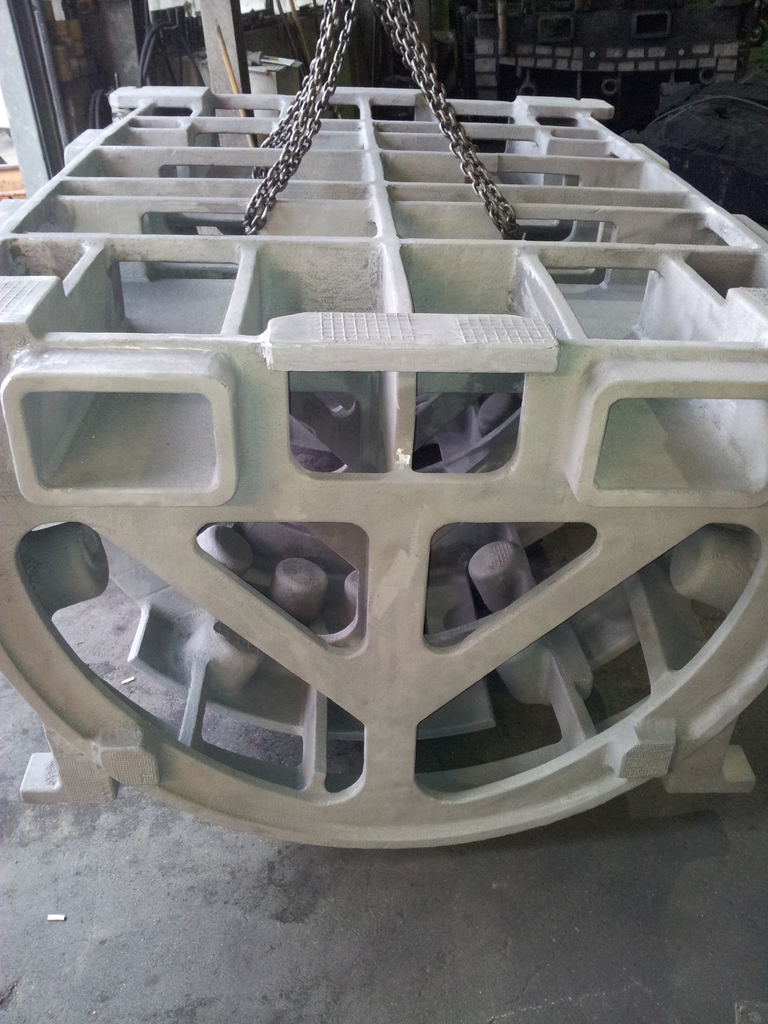PEP SET sand
Let us guide you in the manufacture of your most complex aluminium parts.
Manufacture of complex parts / Large parts
Here are some of the main advantages of PEP SET sand for foundries:
Precision and complexity :
Chemical setting sand can be used to create very precise and complex cores and moulds. It can be used to reproduce fine details and complex part geometries. This makes it an ideal choice for casting sophisticated shapes.
Low shrinkage :
PEP SET sand has minimal shrinkage during hardening. This means that the dimensions of the moulded parts are closer to those of the original model, reducing the need for subsequent machining.
Hardening of sand :
PEP SET sand hardens in a given time, between 15 minutes and 1 hour depending on the settings. Moulds can be made without metal frames.
Good surface properties :
Parts moulded using this technique have a high quality surface, requiring less finishing after moulding.
Versatility of alloys :
Chemical setting sand is compatible with a wide variety of metal alloys.
Aluminium and its alloys are suitable for a variety of applications.
Good repeatability :
Chemical setting sand offers high repeatability in the production of moulded parts. It is essential for sectors with demanding dimensional tolerances.
Reducing defects :
The chemical sand moulding process reduces surface defects and improves the overall quality of moulded parts.
Recovering waste :
Nevertheless, chemically set sand produces waste compared with certain other moulding methods.
Waste sand is recycled for roads or other substrates.
In summary, chemically set sand is an attractive choice for foundry applications because of its ability to produce accurate and complex castings with fast cure times, good surface properties and a wide range of alloys.

